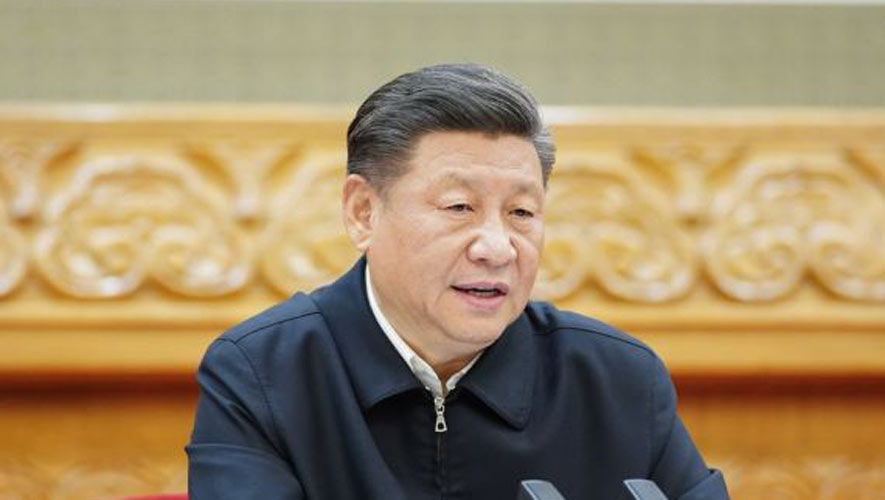As the most crucial Chinese grand strategy in the 21st century, the Belt and Road Initiative has reached its seventh year since its inception in 2013.
For the latest Cambodian Business news, visit Khmer Times Business
Although its implementation has continued to grow, its challenges are promiscuously significant for the Chinese central government. Perhaps the biggest setback among all, there have been lingering perceptions around the world that the Belt and Road Initiative is a tool for Beijing to secure strategic hotspots or control other countries through the vicious “debt trap diplomacy”, as alleged by the Western media at large.
In lieu of the sixth anniversary of the Belt and Road Initiative, Chinese think tank Anbound published its own research report that revisited the initiative prior to President Xi Jinping’s articulations of its “Belt” and “Road” components in September and October 2013 respectively.
Not only did it provide the full background of the Belt and Road Initiative, the report also tried to answer what the world has been overlooking in respective assessments of the Chinese initiative. Instead of acceding to the high-politics discourse on Beijing’s BRI, there are two prevailing circumstances that many pundits and China observers have
failed to recognise but nonetheless were what led to the formation of the grand initiative.
First, the BRI should be understood as part of the extension and solution to China’s domestic economic situations after 2008. As outlined in an Anbound report, the golden age of Chinese economy from 2000 to 2008, was unsustainable from the start. From that year onwards, China no longer experienced spectacular trade and investment growth and, instead, entered a long period of stagflation. This questioned the need for China to change its previous “high trade plus investment” development model and adopt a new approach for sustainable economic growth.
At the same time, the development level between the eastern (coastal) and western (hinterland) provinces was still largely imbalanced despite all-round support.
While the Great Western Development Strategy (launched in 1999) was overwhelmed with great potential in developing the western heartland, it still fell short of achieving its initial goals of enlarging the economic size of these faraway provinces.
Based on the data provided by the National Bureau of Statistics of China, the combined economic size of the western provinces in 2008 was virtually miniscule when compared with their eastern peers.
By all means, Beijing’s assistance-oriented approach to the western heartland failed to solve fundamental problems in these provinces, including shortages of jobs, capital outflows, unsustainable development, social class gaps and radicalisation of minorities. This long list of problems meant Beijing needed a new and long-term solution for these under-developed western
provinces. Also, the occurrence of the 2008 global financial crisis made China’s need for a new developing strategy more pressing than ever.
While the Chinese central government’s stimulus package managed to expand China’s domestic demand to reduce the impacts from stagnation of international trade, it remained a short-term solution.
Worse still, it produced three negative repercussions at the domestic front: over-accumulation of raw materials (steel and cement), high debts among state-owned enterprises (SOEs) and financial unsustainability of local governments. When President Xi came in, his administration had to confront these three domestic circumstances.
As the domestic choices had run their course in delivering economic growth, the next feasible option was for China to venture abroad via international cooperation with all countries. Second, the BRI has its roots in the New Silk Road Initiative (NSRI) – an initiative proposed by the US in 2011.
Because of the impending withdrawal of US troops in Afghanistan, the then Obama administration planned to stabilise the country by transforming it into a transportation hub in the region. With the rapid growth of the Indian economy and the enormous potentials of Central Asian economies, it was expected that the NSRI would position Afghanistan as a bridge linking these two economies and, going forward, would reap the economic benefits.
The end goal, of course, was for Kabul to achieve long-term stability after the full withdrawal of the US troops by December 2016. Nevertheless, the NSRI did not go as planned for several reasons. Not only did the geographical distance remain an impediment for Washington to effectively implement the initiative, prospective member countries in the region also have their own sets of problems (such as corruption or insurgencies) and these diverted their attention away from the NSRI. Furthermore, because of limited resources at hand, the Obama administration had to prioritise the relatively urgent “Pivot to Asia” strategy instead of the NSRI.
Compounding these difficulties was the hostile and hesitant attitudes displayed by major players in this region such as China, Russia and Iran, in participating in what seemed to be Washington’s initiative. As a result, despite its potentials, the NSRI was never implemented by the Obama administration.
Unlike most of our Chinese peers at that time, Anbound believed that the NSRI was an excellent approach for China to solve its domestic economic problems while simultaneously, positioned it as a major global power. Recognising these two opportunities, Anbound’s Chief Researcher Chen Gong proposed the think tank’s New Silk Road Trade Axis (NSRTA) to various levels of the Chinese government and highlighted four benefits: affirming China’s historical status as a land power, reducing confrontation with the US, solving its East-West imbalanced economic development and the long-term upgrading of its industries. These were the arguments that Anbound put to the Chinese central government as well as relevant provincial governments (including the border province in the West, Xinjiang Uighur Autonomous Region).
When President Xi articulated the Silk Road Economic Belt Initiative (the “Belt” component of the BRI) in Kazakhstan in September 2013, it was clear that Beijing recognised the benefits that it could draw from the initiative. And, with the subsequent articulation of the 21st Century Maritime Silk Road (the “Road” component of the BRI), China now has a complete grand initiative that connects its economy with participating countries by both land and sea.
Collectively speaking, the BRI marked the turning point of China’s foreign policy in which Beijing started to adopt an outward-looking posture; actively using its resources to shape its external environment.
Yu Pan serves as the associate research fellow and the research assistant of Chen Gong, founder, chairman, and chief researcher of Anbound




